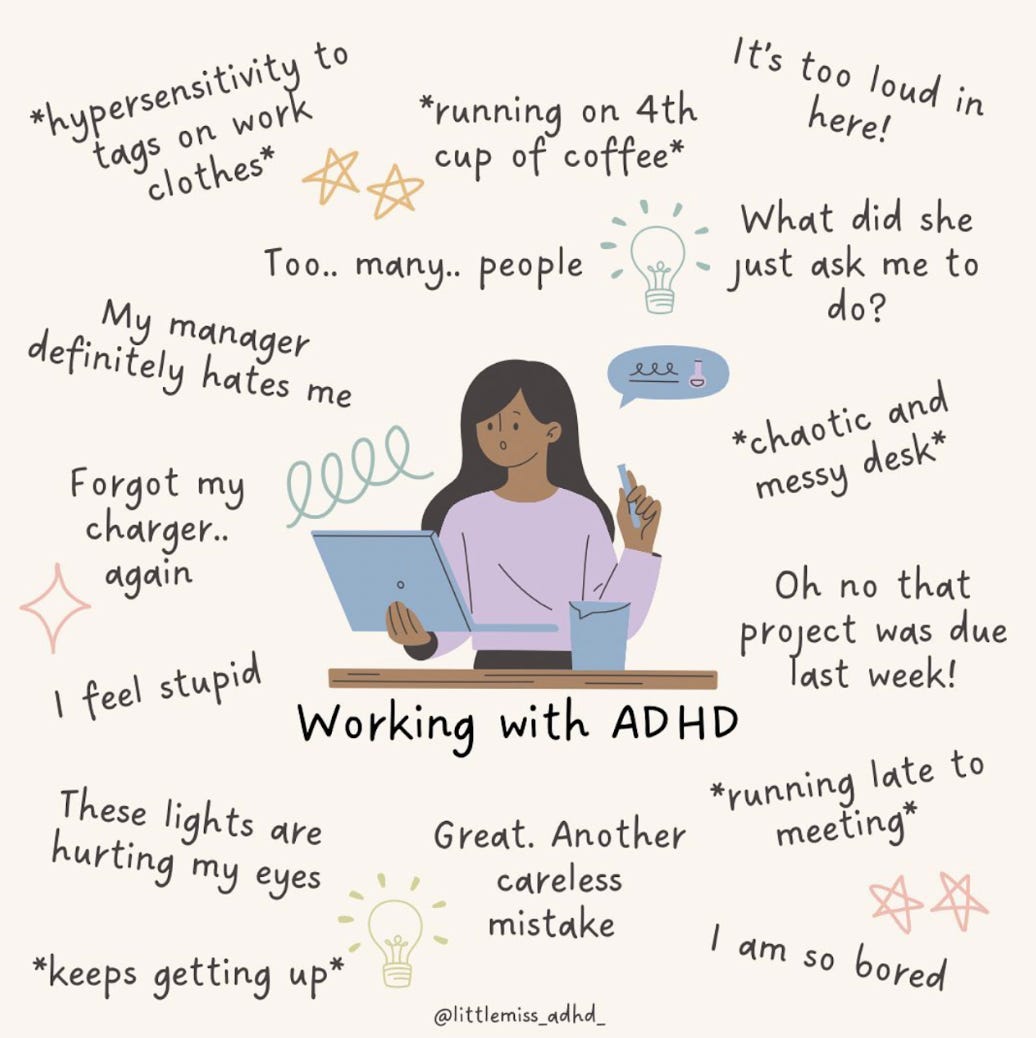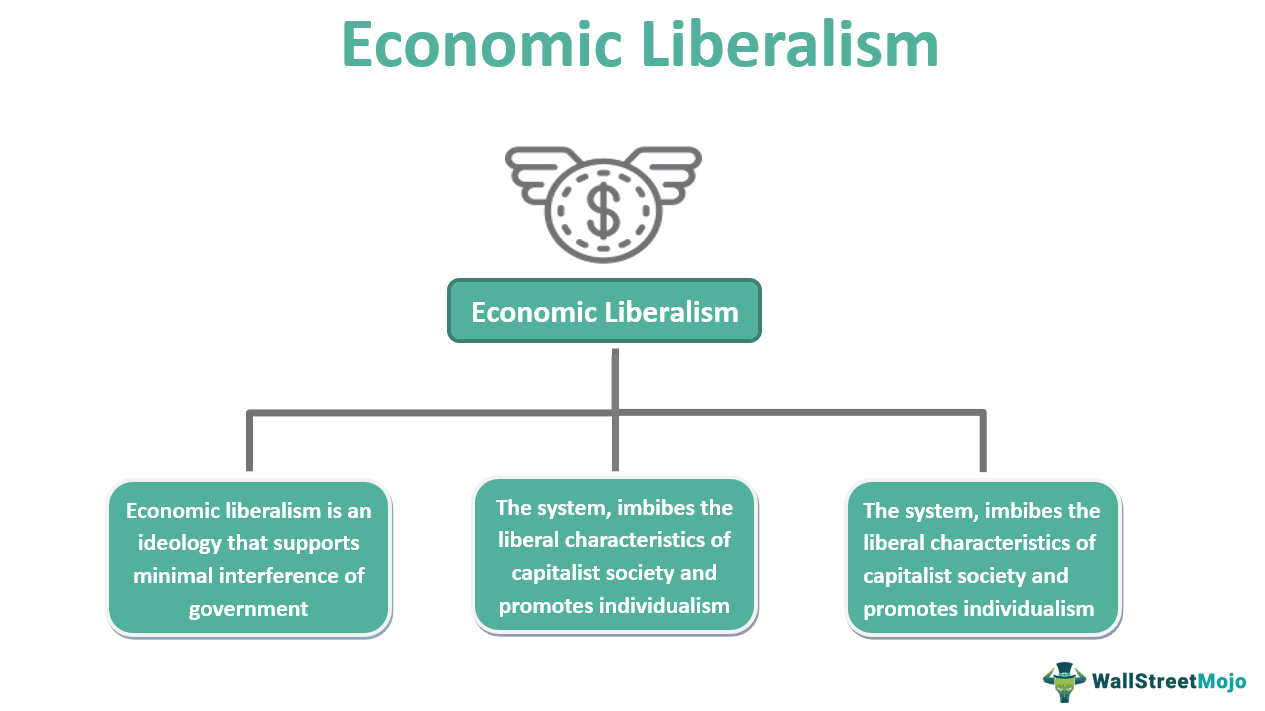Understanding ADHD Misconceptions Fueled By TikTok

Table of Contents
The "ADHD Brain" and its Misrepresentation on TikTok
TikTok’s short-form video format often oversimplifies complex topics, and ADHD is no exception. This simplification can lead to a profoundly inaccurate understanding of the condition.
Oversimplified Explanations of ADHD
- Example 1: "ADHD is just being lazy." This drastically reduces the multifaceted nature of ADHD, ignoring the neurobiological underpinnings.
- Example 2: "It's all about dopamine." While dopamine plays a role, ADHD involves a complex interplay of neurotransmitters and brain regions affecting executive function.
- Example 3: "Sugar causes ADHD." There is no scientific evidence to support this claim.
Counterpoint: ADHD is a neurodevelopmental disorder characterized by persistent patterns of inattention, hyperactivity, and impulsivity. These symptoms stem from underlying neurobiological differences in brain structure and function, including deficits in executive functions like planning, organization, and working memory. These deficits are not simply a matter of willpower or laziness. Understanding the neurobiological complexities is crucial for accurate comprehension. For more in-depth information, consult resources like CHADD (Children and Adults with Attention-Deficit/Hyperactivity Disorder) [link to CHADD website] and ADDitude Magazine [link to ADDitude Magazine].
The Glorification of ADHD Symptoms
Some TikTok trends romanticize certain ADHD symptoms, portraying them as quirky traits rather than significant challenges.
- Example 1: Hyperfocus is presented as a superpower, neglecting the downsides of difficulty shifting attention or the potential for burnout.
- Example 2: Impulsivity is portrayed as spontaneity, ignoring its potential for risky behaviors and damaged relationships.
- Example 3: Restlessness is framed as creativity, disregarding the impact on concentration and productivity.
Counterpoint: While hyperfocus can be beneficial in specific contexts, it often comes at the cost of neglecting other essential tasks. Impulsivity can lead to regrettable decisions and damaged relationships, while constant restlessness can significantly impair academic and professional success. It's crucial to acknowledge the negative consequences alongside any potential positives.
The Dangers of Self-Diagnosis and Treatment via TikTok
Relying on TikTok for ADHD diagnosis and treatment is incredibly dangerous and potentially harmful.
The Importance of Professional Diagnosis
- Why self-diagnosis is inaccurate: Online quizzes and self-assessments lack the depth and nuance of a professional evaluation. They cannot account for co-occurring conditions or individual variations.
- Why self-diagnosis is harmful: Incorrect diagnosis can lead to inappropriate treatment, delayed access to necessary support, and exacerbation of symptoms.
Counterpoint: A professional ADHD diagnosis involves a comprehensive evaluation by a qualified mental health professional, such as a psychiatrist, psychologist, or neuropsychologist. This typically includes clinical interviews, behavioral observations, and neuropsychological testing. Finding a qualified professional is essential for accurate diagnosis and appropriate treatment planning. [Link to resource for finding mental health professionals].
The Risks of Unmonitored "Treatment" Recommendations
Following medication or therapy advice from unqualified sources on TikTok can have severe consequences.
- Examples of potentially harmful "treatments": Unmonitored medication changes, reliance on unregulated supplements, and engagement in potentially risky self-help strategies.
Counterpoint: Managing ADHD effectively requires professional guidance. Medication, if prescribed, should be monitored by a physician. Therapy, such as cognitive behavioral therapy (CBT) or other evidence-based approaches, provides crucial coping skills and strategies. It is vital to remember that this article is for informational purposes only and should not replace professional medical advice.
Finding Reliable Information about ADHD on Social Media
Navigating the online world for accurate ADHD information requires critical thinking and careful evaluation of sources.
Identifying Credible Sources
- Criteria for evaluating credibility: Look for sources with clear credentials (e.g., licensed professionals), evidence-based information, and transparency about potential conflicts of interest.
- Examples of reliable sources: Reputable organizations (CHADD, ADDitude), peer-reviewed research articles, and websites of licensed professionals.
Counterpoint: Be wary of sensationalized claims, unsubstantiated assertions, and information lacking scientific backing. Question the motivations behind the information being shared.
Engaging with the ADHD Community Responsibly
Online communities can offer support and connection, but responsible engagement is vital.
- Tips for respectful interactions: Practice empathy, avoid judgmental language, and refrain from spreading misinformation.
- The negative impact of misinformation: Harmful stereotypes and inaccurate information can stigmatize individuals with ADHD and hinder their access to support.
Counterpoint: Engage in constructive dialogue, share accurate information, and challenge misinformation respectfully.
Conclusion
Relying solely on TikTok for information about ADHD can be dangerous. Misinformation abounds, leading to inaccurate self-diagnoses and potentially harmful self-treatment strategies. Accurate understanding of ADHD requires a nuanced approach and professional guidance. Seek a professional diagnosis and evidence-based treatment to effectively manage ADHD. Remember to critically evaluate online information and only trust credible sources. Share this article to help others understand ADHD and avoid the pitfalls of misinformation on platforms like TikTok. Improving your understanding of ADHD and dispelling common misconceptions is crucial for effective management and a better quality of life.

Featured Posts
-
 Analyse Deutsche Teams In Champions League K O Duellen
Apr 29, 2025
Analyse Deutsche Teams In Champions League K O Duellen
Apr 29, 2025 -
 2024 Metais Porsche Pardavimu Augimas Lietuvoje
Apr 29, 2025
2024 Metais Porsche Pardavimu Augimas Lietuvoje
Apr 29, 2025 -
 How To Buy Capital Summertime Ball 2025 Tickets A Step By Step Guide
Apr 29, 2025
How To Buy Capital Summertime Ball 2025 Tickets A Step By Step Guide
Apr 29, 2025 -
 Lask Klagenfurt Misstoene Und Sturzflug In Der Bundesliga
Apr 29, 2025
Lask Klagenfurt Misstoene Und Sturzflug In Der Bundesliga
Apr 29, 2025 -
 Trumps Next 100 Days A Deep Dive Into Trade Deregulation And Executive Actions
Apr 29, 2025
Trumps Next 100 Days A Deep Dive Into Trade Deregulation And Executive Actions
Apr 29, 2025
Latest Posts
-
 Reuben Owen Shares Family Update Life After Our Yorkshire Farm
Apr 30, 2025
Reuben Owen Shares Family Update Life After Our Yorkshire Farm
Apr 30, 2025 -
 Farm Lifes Challenges Amanda Owens Honest Account
Apr 30, 2025
Farm Lifes Challenges Amanda Owens Honest Account
Apr 30, 2025 -
 Our Yorkshire Farms Amanda Owen Opens Up About Continuing Conflicts With Clive
Apr 30, 2025
Our Yorkshire Farms Amanda Owen Opens Up About Continuing Conflicts With Clive
Apr 30, 2025 -
 Amanda Owen Addresses The Strains Of Farm Family Life
Apr 30, 2025
Amanda Owen Addresses The Strains Of Farm Family Life
Apr 30, 2025 -
 Our Yorkshire Farm Reuben Owens Update On His Eight Siblings
Apr 30, 2025
Our Yorkshire Farm Reuben Owens Update On His Eight Siblings
Apr 30, 2025
